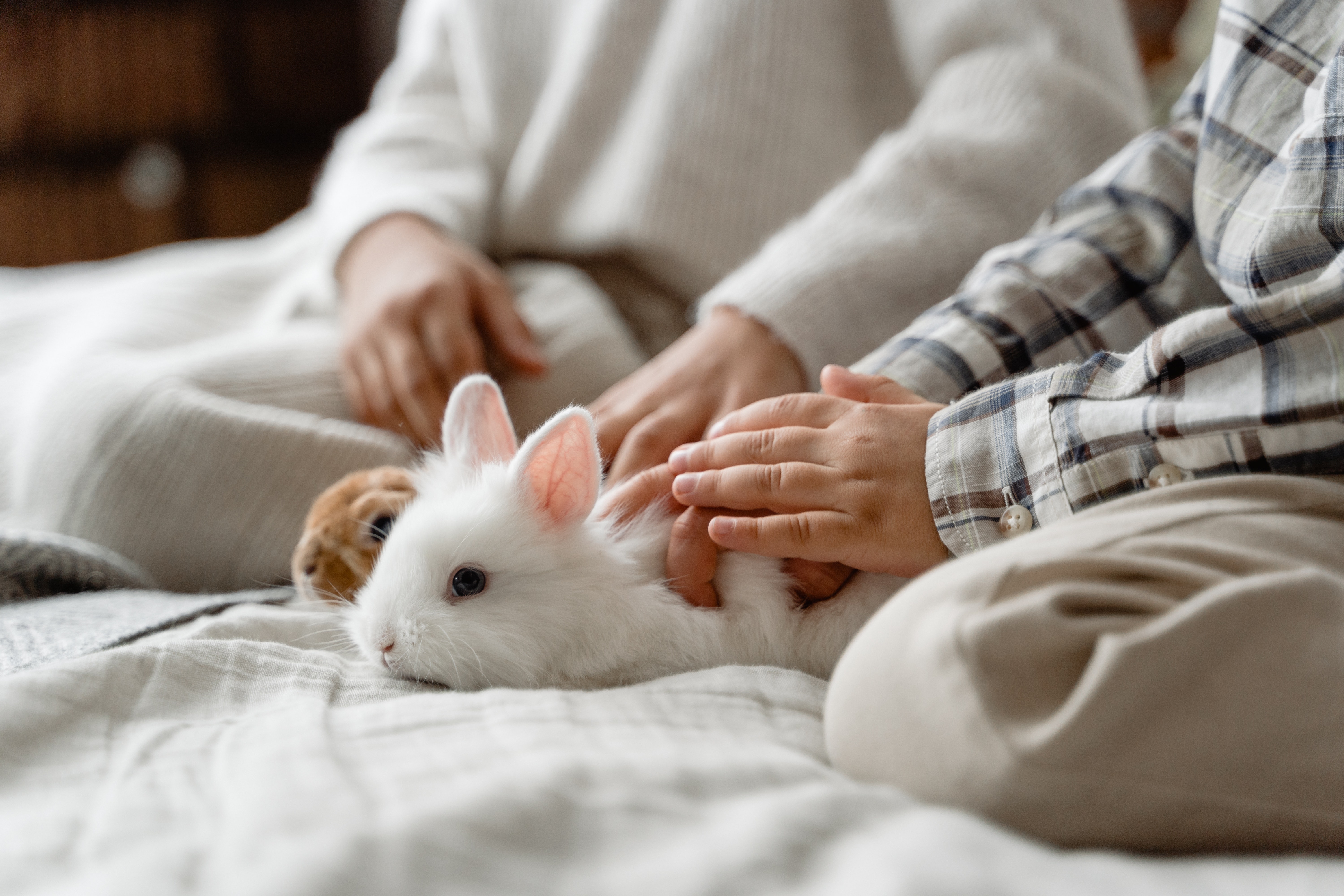*Co-authored with Dr. Leslie Solomonian, ND
Animal companionship has many benefits for your health and well-being, including mental, physical, and heart health. The benefits are great for all ages, from young children to the elderly. Read on to see how bonding with animals may help you.
Animals can be a source of comfort, consistency, and routine amid life’s busyness, demanding careers, hectic extracurricular schedules, and the overwhelming bombardment of the news cycle. The effects of the COVID-19 pandemic in particular challenged mental health and flipped life upside down. With many people staying home, there was a surge in companion animal adoptions. Even though the pandemic may be over, adopting an animal today may remain a great way to improve your mental and physical health as well as theirs.
Animals: Good for Our Mental Health
Animals nurture positive mental health through their connection with their human companions by providing emotional support during times of crisis.1 The presence of an animal can shift attention away from stressors, reducing one’s perception of them. A relationship with a dog candecrease symptoms of depression and Post Traumatic Stress Disorder (PTSD), and has also been shown to reduce anger and improve social support and quality of life among individuals living with PTSD.2 In addition, children who share their home with an animal have a proven decreased probability of developing clinical anxiety.3
Animals Keep Us Active
Dogs in particular can inspire us to lead a more active lifestyle; people who live with dogs are more physically active on average than those who don’t.3 The routine of daily walks for the dog fosters consistent movement despite other circumstances (e.g., rainy or cold weather, a long day at work, etc.), and reinforces the bond between the dog and their human companion.People report feeling happier after a walk with their dog, possibly associated with time spent outside, increased opportunities for social interactions, or just the movement itself.4
Heart health help
Having a bond with an animal may offer cardio-protective benefits, and has been linked to decreases in the risk of developing congestive heart disease.5 A study found that having a companion animal, especially a dog, cuts the risk of developing coronary heart disease. A further trend of decreased health risks was observed based on the number of years individuals had a companion animal and the time they spent playing with them.6 Research conducted on married couples demonstrated that sharing a home with a dog or a cat was correlated with lower resting heart rate, lower resting blood pressure, lower reactivity during exposure to short-term stress, and quicker recovery times from a cardiac event.7 A relationship with an animal has also been shown to improve long-term survival after a heart attack.8

“The effect was most pronounced in single-child families, which suggests that an animal can provide social and emotional developmental benefits similar to having a sibling.”
BENEFITS of Pets FOR KIDS
Having an animal in the home can increase time spent as a family in the form of walking, playing, and grooming. A study conducted on children aged five and seven found that a relationship with an animal decreases difficulties with peers, and increases prosocial behaviours such as sharing, helping, cooperating, and caring for others. The effect was most pronounced in single-child families, which suggests that an animal can provide social and emotional developmental benefits similar to having a sibling.9 Caring for an animal also provides kids with opportunities to develop a sense of responsibility and the skills of empathy. Having a companion animal may improve children's attitudes towards and knowledge of all animals.10 There are many spin-off benefits for little ones, in the form of developing a sense of awe, building responsibility, and engagement with the more-than-human world.

Exposure to animals may even reduce the likelihood of developing allergies. Contact with dogs in the first year of life is protective against the development of asthma, hay fever, and eczema due to common allergens.11 If allergies have already developed, however, animals in the home may significantly exacerbate them; explore this carefully before taking on the responsibility of caring for an animal. Although cardiovascular disease tends to emerge in adulthood, its seeds are planted in childhood. Given the above benefits though, having an animal friend in childhood may reduce those risks.
BENEFITS of Pets FOR SENIORS
Seniors may reap particular benefits from sharing their lives with animals. The motivation that dogs provide to stay active can help prevent the loss of physical functioning in older adults while reducing illnesses associated with aging. Perhaps more notably, the relationship between an animal and its person addresses loneliness, which is prevalent among the elderly, and is a significant predictor of poor quality of life and mortality.12

Many senior living communities have visiting therapy animals (not just dogs), which help improve mood and provide a change in routine. Older adults identify the key benefits that animals offer as comfort and safety, social inclusion and participation, purposeful routine and structure, and a way to play a meaningful role.13
A PET CAN BE ANY ANIMAL
Although less traditional and less studied, non-furry animals can offer similar benefits (although you might not take your snake for a walk). Caring for fish in an aquarium, and its sound of bubbles, can reduce stress and anxiety, and possibly reduce blood pressure.14 One study found reptiles tend to be referred to as family members by the people caring for them.15

Nurture Bonds with Care & Affection
The benefits are profound, but caring for an animal comes with responsibility, time commitment, and financial investment. Consider that animals are autonomous living beings who bond with you as much as you bond with them, and have their own personalities and individual needs. It’s important to explore what animal is best for your circumstances and to consider if you have the time and resources necessary for their care.
Different animals require different amounts of space—whether it’s a yard for an active dog, space to climb for a cat, or a large enough aquarium, terrarium, or cage for smaller creatures—daily interaction with you, and the presence or absence of other non-human animals. Adequately feeding and providing for animals requires financial resources that will vary depending on their needs. If having a companion animal is right for you, please consider adopting an animal from a shelter instead of buying from a breeder.

If now is not the best time to welcome an animal into your family, consider nurturing a plant! Plants are a lower cost and possibly more accessible option than a companion animal and are great for your health (more on the benefits of plants in your home or office in the next issue of EcoParent). You can also enjoy similar benefits by spending time in nature with non-domesticated creatures. Going for a walk in the park and watching the squirrels, listening to birds, smelling wildflowers, lying in the grass and looking for (and marvelling at) spiders can have similar calming effects and health benefits. Not accessible? Popping some popcorn and watching a nature documentary while bonding with one another can work wonders too.
For references visit ecoparent.ca/EXTRAS/FALL23






